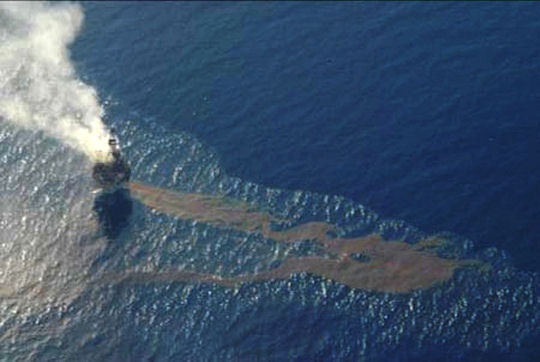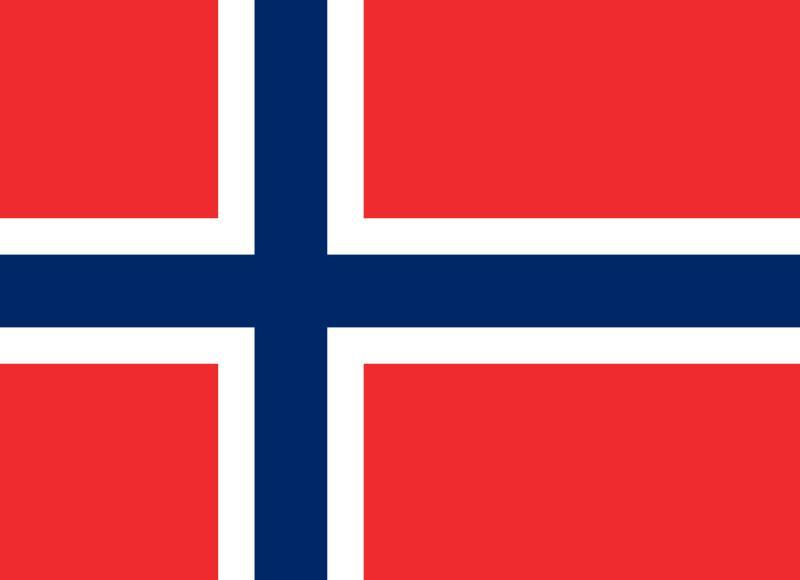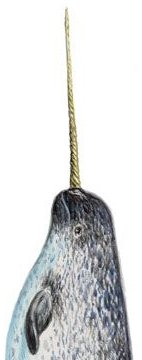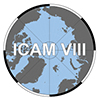|
|
|
|
|
|
|
|
 POLAR 2018, June 15-27, 2018 (Davos, Switzerland). POLAR2018 is a joint event from the Scientific Committee on Antarctic Research (SCAR) and the International Arctic Science Committee (IASC). The SCAR meetings, the ASSW and the Open Science Conference will be hosted by the Swiss Federal Institute for Forest, Snow and Landscape Research WSL under the patronage of the Swiss Committee on Polar and High Altitude Research. The WSL Institute for Snow and Avalanche Research SLF is organizing POLAR2018. POLAR 2018, June 15-27, 2018 (Davos, Switzerland). POLAR2018 is a joint event from the Scientific Committee on Antarctic Research (SCAR) and the International Arctic Science Committee (IASC). The SCAR meetings, the ASSW and the Open Science Conference will be hosted by the Swiss Federal Institute for Forest, Snow and Landscape Research WSL under the patronage of the Swiss Committee on Polar and High Altitude Research. The WSL Institute for Snow and Avalanche Research SLF is organizing POLAR2018.
 Coastal Response Research Center Requests Input on the State of Science on Dispersant Use in the Arctic. Coastal Response Research Center Requests Input on the State of Science on Dispersant Use in the Arctic. The Coastal Response Research Center (CRRC) recently collected statements and reports on five topic areas related to dispersant use in the Arctic: efficacy and effectiveness; physical transport and chemical behavior; degradation and fate; eco-toxicity and sublethal impacts; and, public health and food safety. CRRC request written input on the statements the scientists made on the state-of-the-science regarding dispersant use, particularly as it applies to Arctic waters. Written comments are requested by July 13th. More information on this initiative is available here.
|
Media
As the Arctic Warms, a Changing Landscape on the Chukchi Sea. It's well established that Arctic ice is changing in dramatic ways. As the climate warms, ice coverage is decreasing , the amount of multiyear ice has gone down significantly and in Alaska, many communities are seeing the ice come in later, and leave sooner. So, what do those changes look like up close? On a late-May evening, about a dozen grad students and postdocs gather at the north edge of Utqiaġvik, by the Barrow Arctic Research Center. Alaska Public Radio
 Norway's Coast Guard Stares Down Big Challenges in Arctic. Norway's Coast Guard Stares Down Big Challenges in Arctic. During the three weeks the Norwegian Coast Guard vessel Harstad sailed around Svalbard in late May, it was the only military ship available to respond to a crisis in the vast waters surrounding the island. But that reality is the norm and likely will be for a long time, even as demands on the service grow by leaps and bounds, said the Harstad's commanding officer, Lt. Cmdr. Kyrre Einarsen, on May 23. Svalbard is Norway's northernmost island, a landmass about the size of Ireland situated in the Arctic Circle. Defense News
Oceanographers Select Wave Glider Ocean Robot for Scientific Research. Top oceanographers have selected Wave Gliders, the most experienced, long duration ocean robots, as their sensor platform to conduct advanced scientific research in the most inhospitable and remote regions of the Arctic and Southern Oceans. The US scientists, from Scripps Institution of Oceanography (Scripps) and the Applied Physics Laboratory of the University of Washington (APL-UW), will integrate sophisticated oceanographic and atmospheric sensors onto the Wave Gliders to measure extreme wave states, winds, temperature, and salinity in the upper layers of the ocean. Robotics and Automation
News: Cave Scientist Gina Moseley Receives 1.2 Million Research Prize. Dr Gina Moseley from the Innsbruck Quaternary Research Group will receive one of this year's prestigious Austrian Science Foundation (FWF) START prizes. The START program is an Austrian initiative to support and strengthen outstanding research projects in science and humanities. Gina, a member of the University of Bristol Spelaeological Society and current Symposium Lecture Secretary of the BCRA has been chosen for her research into climate change in the Arctic, as part of the Greenland Caves Project. This work began in 2015 with the visit of a 5-person team to the Arctic to explore, survey, photograph and take samples from caves in Northeast Greenland. In 2018, this work has extended into a new area as part of a Top to Top Global Climate Expedition where they will be exploring potential new cave sites. Darkness Below New Study Provides the First Comprehensive, Long-term Look at Alaska's Changing Ecosystems. New research has revealed significant changes to Alaska's landscape in recent decades. During the past 32 years, about 13 percent of the state -- 67,000 square miles or an area larger than the state of Wisconsin -- has changed, according to a new USGS-led study in collaboration with researchers from academia and other federal agencies. This is the first study to document more than three decades of land and water changes across Alaska, and it is the first study to quantify the underlying drivers of those changes, which is vital for understanding how these systems may continue to change. Sit News
 The Strange, Fading Call of the Narwhal. The Strange, Fading Call of the Narwhal. Among the many splendid creatures certain to be affected by a warming climate is the narwhal, the unicorn of the sea. The narwhal, a pale, porpoise-like resident of Arctic waters, and a close relative of the beluga whale, takes its name from the Old Norse word nahvalr, or "corpse-whale," for its resemblance to the bodies of dead sailors. It is best known for the long horn-in fact a tooth, one of just two in the animal's head-that extends through its upper lip. Last year, scientists discovered that narwhals use the tusk, a sensory tool loaded with nerve endings, to whack and stun fish before eating them. But little is known about the narwhal's day-to-day life. Narwhals are skittish in the wild and don't thrive in captivity. The New Yorker
|
|
Future Events
From Entering the Field to Taking the Helm, Women's Perspectives on Polar Research, June 20, 2018 (Kongresszentrum Davos, Switzerland). This event is hosted by ARCUS and co-sponsored by USARC. Research findings are shaping our understanding of the issues that women face in technical fields, particularly those with strong connections to fieldwork. Concerns include a deficit of female leadership due to the so-called "leaky pipeline," a lack of safety and inclusivity at field locations, and explorations of ways in which research agendas have discounted contributions of women. Despite historical barriers to participation in polar field work, women have made outstanding contributions to polar physical, biological and social sciences, as well as to community-level efforts to coordinate and communicate science. In the past decade, women have stepped into leadership roles at polar institutions. Yet evidence of persistent challenges, reflected both in academic studies and media reports, compels us to examine the sources of those challenges and to explore solutions to ensure a bright future for all those who wish to engage in polar research.
5th European Conference on Permafrost, June 23-July 1, 2018 (Chamonix-Mont Blanc, France). In the continuation of the International and Regional conferences convened by the International Permafrost Association, the 5th European Conference on Permafrost (EUCOP 2018) will be held in Chamonix-Mont Blanc, France, 23rd June - 1st July 2018. The conference aims at covering all relevant aspects of permafrost research, engineering and outreach on a global and regional level. Conference website: here.
Arctic Observing Summit 2018, June 24-26, 2018 (Davos, Switzerland). The Arctic Observing Summit (AOS) is a high-level biennial summit that provides a platform to address urgent and broadly recognized needs of Arctic observing across all components of the Arctic system. AOS 2018 will be held in Davos, Switzerland ( June 24-26) and will focus on pressing issues in the implementation and support of sustained observations that can be addressed through a business-case lens. To that end, short submissions are requested that address any and all aspects of the overarching theme and sub-themes. Additional information can be found here.
17th International Congress of Circumpolar Health (ICCH17), August 12-15, 2018 (Copenhagen, Denmark). The ICCH congresses are held every third year in different locations in the circumpolar area and represent the largest scientific meetings worldwide on circumpolar health. The ICCH congresses serve as the primary source of information exchange and scholarly communication in issues relating to circumpolar health. More than 750 participants generally register and participate in each Congress, and more than 400 scientific papers or posters are usually presented.
UArctic Congress 2018, September 3-7, 2018 (Oulu and Helsinki, Finland). The UArctic Congress 2018 will bring together key UArctic meetings and a science conference into one single gathering, including business meetings of the Council of UArctic, Rectors' Forum, Student Forum, and Thematic Networks & UArctic Institutes Leadership Team. The Congress is an integral part of the Finland's Arctic Council chairmanship program, and open to the public. The event will highlight the themes and priorities of the Finnish chairmanship, including the goals of the United Nations' 2030 Agenda for Sustainable Development, and the Paris Agreement under the UN Framework Convention on Climate Change.
Scientific Exploration of the Arctic and North Pacific (SEA-NorP), September 25-27, 2018 (Mt. Hood, Oregon USA). This workshop will include discussion of hypotheses that can be tested by scientific drilling in the region, the technology necessary to achieve those goals, ideal sites for drilling based on existing data, and where additional site survey data is needed. The goal of the workshop organizers is that multiple proposals will be initiated at the workshop, both for full cruise legs and for shorter, targeted expeditions around the following themes: ocean gateways, geohazards, volatile cycling, ice histories at transition zones, biosphere and climate.
The second Arctic Biodiversity Congress is hosted by the Conservation of Arctic Flora and Fauna (CAFF), the biodiversity working group of the Arctic Council, and the Ministry of the Environment, Finland. The second Arctic Biodiversity Congress will build on the success of the first Congress, held in 2014 in Trondheim, Norway, and will bring together scientists, policymakers government officials, Indigenous representatives, Traditional Knowledge holders, industry, non-governmental organizations, and others to promote the conservation and sustainable use of Arctic biodiversity.
|
|

  
4350 N. Fairfax Drive, Suite 510
Arlington, VA 22203, USA
External links in this publication, and on the USARC's World Wide Web site ( www.arctic.gov) do not constitute endorsement by the US Arctic Research Commission of external Web sites or the information, products or services contained therein. For other than authorized activities, the USARC does not exercise any editorial control over the information you may find at these locations. These links are provided consistent with the stated purpose of this newsletter and the USARC Web site.
|
|
|
|
|
|
|
|
|
 Norway's Coast Guard Stares Down Big Challenges in Arctic. During the three weeks the Norwegian Coast Guard vessel Harstad sailed around Svalbard in late May, it was the only military ship available to respond to a crisis in the vast waters surrounding the island. But that reality is the norm and likely will be for a long time, even as demands on the service grow by leaps and bounds, said the Harstad's commanding officer, Lt. Cmdr. Kyrre Einarsen, on May 23. Svalbard is Norway's northernmost island, a landmass about the size of Ireland situated in the Arctic Circle. Defense News
Norway's Coast Guard Stares Down Big Challenges in Arctic. During the three weeks the Norwegian Coast Guard vessel Harstad sailed around Svalbard in late May, it was the only military ship available to respond to a crisis in the vast waters surrounding the island. But that reality is the norm and likely will be for a long time, even as demands on the service grow by leaps and bounds, said the Harstad's commanding officer, Lt. Cmdr. Kyrre Einarsen, on May 23. Svalbard is Norway's northernmost island, a landmass about the size of Ireland situated in the Arctic Circle. Defense News The Strange, Fading Call of the Narwhal. Among the many splendid creatures certain to be affected by a warming climate is the narwhal, the unicorn of the sea. The narwhal, a pale, porpoise-like resident of Arctic waters, and a close relative of the beluga whale, takes its name from the Old Norse word nahvalr, or "corpse-whale," for its resemblance to the bodies of dead sailors. It is best known for the long horn-in fact a tooth, one of just two in the animal's head-that extends through its upper lip. Last year, scientists discovered that narwhals use the tusk, a sensory tool loaded with nerve endings, to whack and stun fish before eating them. But little is known about the narwhal's day-to-day life. Narwhals are skittish in the wild and don't thrive in captivity. The New Yorker
The Strange, Fading Call of the Narwhal. Among the many splendid creatures certain to be affected by a warming climate is the narwhal, the unicorn of the sea. The narwhal, a pale, porpoise-like resident of Arctic waters, and a close relative of the beluga whale, takes its name from the Old Norse word nahvalr, or "corpse-whale," for its resemblance to the bodies of dead sailors. It is best known for the long horn-in fact a tooth, one of just two in the animal's head-that extends through its upper lip. Last year, scientists discovered that narwhals use the tusk, a sensory tool loaded with nerve endings, to whack and stun fish before eating them. But little is known about the narwhal's day-to-day life. Narwhals are skittish in the wild and don't thrive in captivity. The New Yorker


 Coastal Response Research Center Requests Input on the State of Science on Dispersant Use in the Arctic. The Coastal Response Research Center (CRRC) recently collected statements and reports on five topic areas related to dispersant use in the Arctic: efficacy and effectiveness; physical transport and chemical behavior; degradation and fate; eco-toxicity and sublethal impacts; and, public health and food safety. CRRC request written input on the statements the scientists made on the state-of-the-science regarding dispersant use, particularly as it applies to Arctic waters.
Coastal Response Research Center Requests Input on the State of Science on Dispersant Use in the Arctic. The Coastal Response Research Center (CRRC) recently collected statements and reports on five topic areas related to dispersant use in the Arctic: efficacy and effectiveness; physical transport and chemical behavior; degradation and fate; eco-toxicity and sublethal impacts; and, public health and food safety. CRRC request written input on the statements the scientists made on the state-of-the-science regarding dispersant use, particularly as it applies to Arctic waters. 